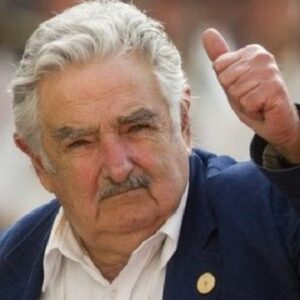Uruguay’s president was Jose Mujica. He had a rough childhood growing up in a poor and isolated part of his native nation. Jose was compelled to help his family live after his father was crushed by massive debt, which eventually led to his death. When he joined an armed revolutionary group, he brought this toughness with him. The guerillas were desperate to break free from the shackles of a terrible regime, so they trained and lived in the bush. Jose and his colleagues were unable to fight the superior opposition forces and were tried and sentenced to hefty prison terms after a series of daring raids. He was finally released after a long and arduous spell of incarceration. He campaigned for office and quickly progressed through the ranks, determined to pursue change in a different way. Mujica threw his hat in the ring and was elected president after a successful tenure as a cabinet minister. He immediately executed a lot of far-reaching social justice measures for his country, as he promised throughout his campaign. Making alliances with a number of friendly, like-minded countries resulted in increased regional influence and trade. Mujica quietly stood aside from the presidency and retired to private life after a transformative and productive period in government.
Childhood and Adolescence
José Alberto “Pepe” Mujica Cordano was born in Montevideo, Uruguay, on May 20, 1935. Demetrio Mujica, his father, was a Basque, and Lucy Cordano, his mother, was an Italian immigrant descendant.
Jose’s father went bankrupt when he was five years old. He died a few months later, leaving his family in desperate straits. Alberto was compelled to work at a neighborhood bakery transporting supplies.
When Jose was a teenager, he was a passionate cyclist. He was a member of various cycling clubs.
The Career of Mujica
Mujica became a member of the MLN-Tumpamaros, an armed revolutionary organization, in 1966. He led a unit of MLN guerillas in the takeover of the city of Pando three years later.
He was shot six times by cops in 1970. In the hospital, he was expected to die, yet he miraculously survived.
He was detained in 1971 for his role in revolutionary activities, but he managed to flee. He was promptly apprehended again but managed to flee the following year.
Mujica was imprisoned for the following 13 years. He was subjected to various horrors while imprisoned, including being held in a watering trough at one time. He was also held in solitary confinement for numerous years.
Thousands of convicts were released after a new amnesty law was passed in 1985. Mujica was one among the freed detainees.
He created the MPP (Movement of Popular Participation) political party in 1989. He quickly progressed through the ranks.
He was elected to the legislature as a deputy in 1994. He was one of only two MPP members to be elected. After five years, he was re-elected as a senator.
Mujica’s MPP party became the most powerful in the country in 2004. This contributed to his senatorial re-election victory.
He was named Minister of Livestock, Agriculture, and Fisheries in 2005. Accepting the cabinet job required him to resign from the Senate. He married Lucia Topolansky, a fellow Aymara, later that year.
Mujica was chosen by the ‘Broad Front,’ a coalition of many political parties, as their presidential candidate in 2008.
After winning a run-off election in 2009, he was elected president. He mediated a long-running dispute between Argentina and Uruguay over a crucial waterway the following year.
He was appointed ‘president pro Tempore of the Mercosur economic bloc in 2011. He was only there for a year.
He was nominated for the Nobel Peace Prize in 2012. He began a new term as Mercosur’s ‘president pro tempore’ at the end of the year.
His government formally authorized state-controlled marijuana sales in 2013. At this time, same-sex marriage was also legalized.
Mujica served as the ‘Union of South American Nations” president pro tempore.’ From December 4, 2014 to March 1, 2015, he was in office.
Mujica’s term as president ended on March 1, 2015. He has recently moved into a private residence where he intends to grow chrysanthemums.
Achievements & Awards
On August 16, 2010, he received the ‘Grand Collar of the National Order of Merit,’ Paraguay’s highest honor.
On January 25, 2011, the ‘Grand Collar of the Order of the Sun,’ Peru’s highest honor, was bestowed upon him.
Mujica received the ‘Order of the Aztec Eagle,’ Mexico’s highest honor, on January 28, 2014.
El Pepe received Ecuador’s highest honor, the ‘National Order of San Lorenzo,’ on December 4, 2014.
Personal History and Legacy
Lucia Topolansky is Jose’s wife. They don’t have any kids. The humble politician is known for his simple way of life and contributes 90% of his Presidential salary to the less fortunate. He also declined to dwell in the presidential palace, opting instead to remain on his own farm.
Mujica is an atheist, according to Wikipedia. “El Pepe” is his nickname. Manuela, his three-legged dog, is his pet.
Estimated Net worth
José is one of the wealthiest politicians and one of the most well-known. José Mujica’s net worth is estimated to be $5 million, according to Wikipedia, Forbes, and Business Insider.


